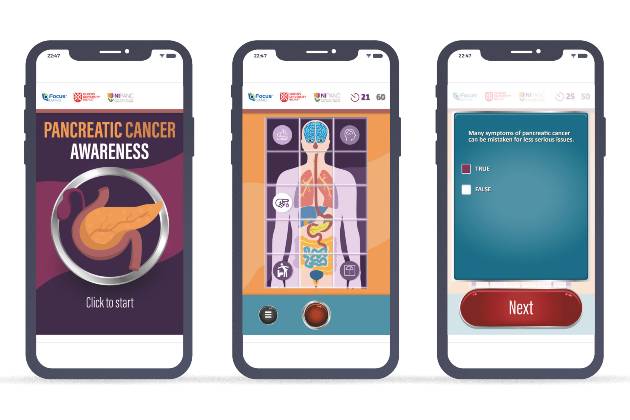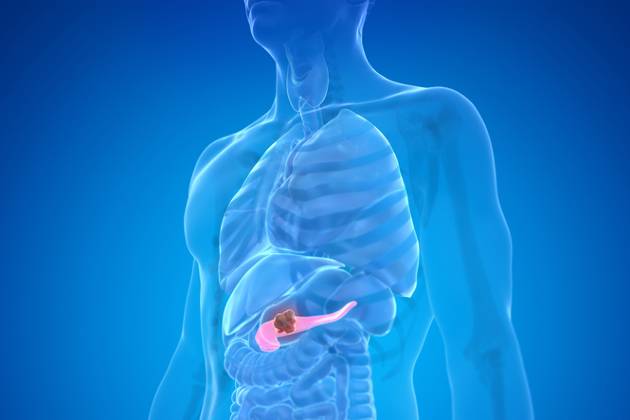Pancreatic cancer is sometimes called ‘the silent killer’ because its early symptoms can be difficult to spot. After learning about the cancer as part of his nursing studies, Glenn McDowell, a student at Queen’s University Belfast, helped create an accessible game to improve knowledge of pancreatic cancer. He tells us more about pancreatic cancer and the game.
What is pancreatic cancer?
GM: Pancreatic cancer is a cancer in which healthy cells in the pancreas stop working correctly and grow out of control. These cancerous cells can build up and form a tumour. A cancerous tumour is malignant, meaning it can grow and spread to other parts of the body.
How common is it?
GM: It’s the 10th most common cancer in the UK, with approximately 10,500 people diagnosed each year. People may not experience any signs or symptoms in the early stages, so the disease is often at an advanced stage when diagnosed. Late diagnosis and the small number of treatment options available means survival rates are low.
What are the symptoms?
GM: Signs and symptoms include:
- abdominal and back pain
- unexplained weight loss
- indigestion and loss of appetite
- changes in bowel habits
- jaundice
- nausea and vomiting
- difficulty swallowing
- recently diagnosed diabetes
- psychological distress.
Unfortunately, people with pancreatic cancer often continue to experience severe symptoms to the end of life and, as a result, report poor quality of life.
Why is public awareness so vital?
GM: Early diagnosis saves lives. With reduced treatment options when diagnosis happens at a later stage, early diagnosis is the only way to improve chances of survival. The current 5-year survival rate is only 7%.
Early diagnosis saves lives
Pancreatic cancer is often referred to as a ‘silent killer’ because early signs and symptoms can be vague and difficult to recognise, so raising public awareness is vital. Earlier detection and diagnosis can help to identify patients who are candidates for surgical resection, which still represents the best chance of cure.
Tell us about the game you helped to develop?
GM: The serious game was developed between my university, Queen’s University Belfast (QUB), plus Northern Ireland pancreatic cancer charity (NIPANC) and Focus Games, to increase public knowledge of the signs and symptoms of pancreatic cancer and empower people to raise their concerns with a medical professional sooner.

It provides practical help to the public. Health care professionals, people with lived experience of pancreatic cancer or whose family members have had pancreatic cancer, academics, researchers and nursing students such as myself all worked together on the design and content.
The game is a part of the #TimeMatters campaign run by NIPANC during November – pancreatic cancer awareness month.
Why is a game a useful way to tackle such a serious subject?
GM: Serious games offer engaging ways to raise awareness about serious health issues. They can capture the public's attention and deliver vital information in a memorable and interactive format.

Unlike traditional methods like posters, leaflets or advertisements, serious games actively involve players in the learning process. By immersing people in a virtual environment, games have the potential to educate and drive behaviour change effectively, making them a powerful tool in public health campaigns.
Following evaluation of the game with more than 500 members of the public, we found players had greater ability to recognise symptoms of pancreatic cancer and higher levels of confidence in contacting medical professionals.








